A balanced gut helps everything from digestion to immunity and even mood. The trillions of microbes living in the digestive tract thrive on wholesome, fiber-rich, and naturally fermented foods. By choosing ingredients that nourish beneficial bacteria while reducing inflammation, you can create an environment where your gut and overall health flourish. Here are twenty natural foods, each with unique nutrients and live cultures, that can help you build a healthier, happier gut.
1. Yogurt
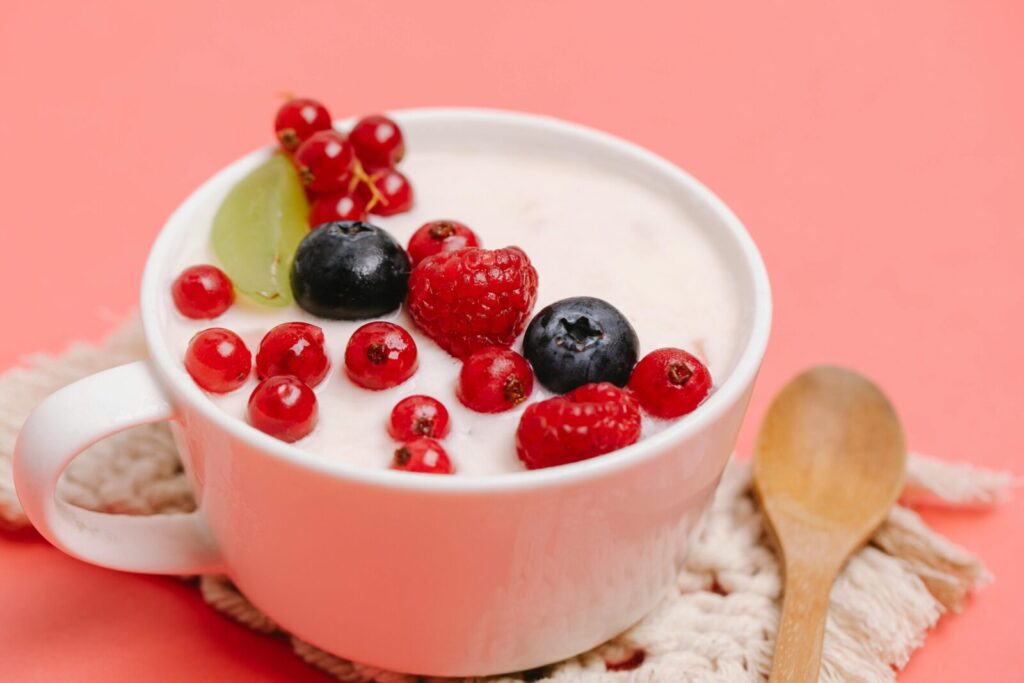
Creamy, tangy yogurt is one of the best-known sources of probiotics, the live bacteria that support a balanced gut microbiome. Look for plain, unsweetened yogurt with live cultures like Lactobacillus or Bifidobacterium, which aid digestion and reduce bloating. Yogurt made from cow, goat, or plant-based milks offers calcium, protein, and vitamins that work together to strengthen your digestive lining. Enjoy it as a snack, a smoothie base, or a topping for fruit to maximize its gut-friendly benefits.
2. Kefir
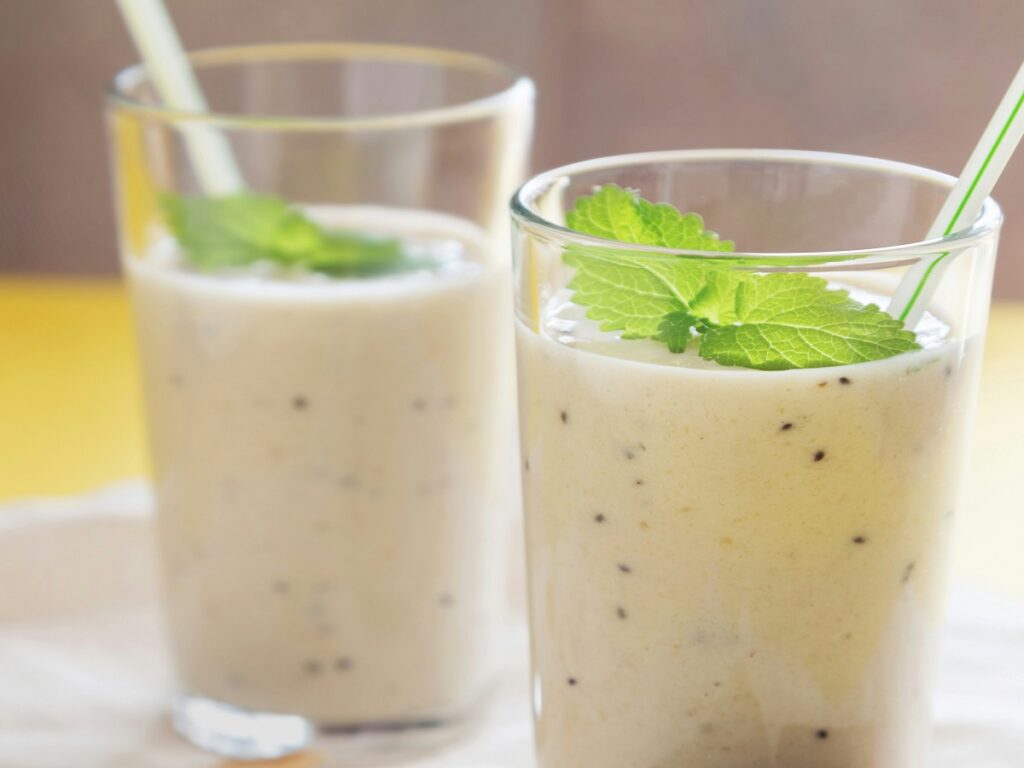
Kefir is a fermented milk drink teeming with diverse probiotic strains and beneficial yeasts. Its slightly tart taste comes from fermentation, which naturally reduces lactose, making it easier to digest. Regular kefir consumption may improve nutrient absorption and calm inflammation. You can drink it plain, blend it into smoothies, or drizzle it over granola for a gentle boost to gut flora. Always choose plain, unsweetened kefir to avoid added sugars that can disrupt gut balance.
3. Sauerkraut
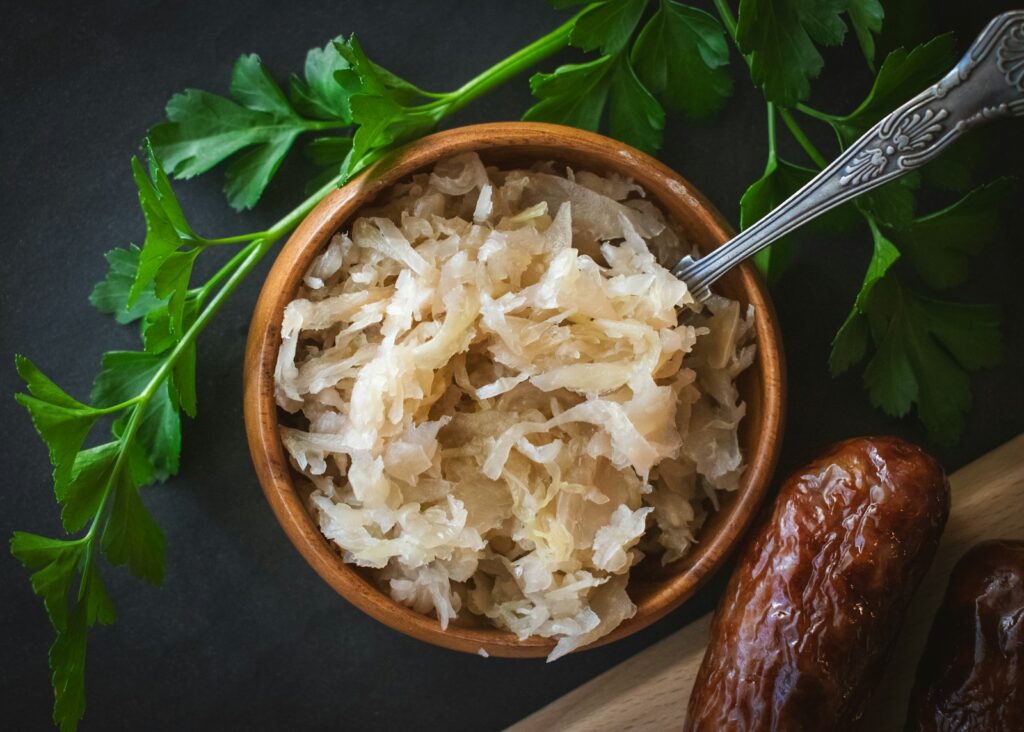
Made from finely shredded cabbage fermented with natural lactic acid bacteria, sauerkraut is rich in probiotics, fiber, and vitamins C and K. The fermentation process creates beneficial enzymes that enhance digestion and nutrient absorption. Sauerkraut’s tangy crunch pairs well with sandwiches or salads, providing a flavorful way to support your microbiome. For the best gut benefits, choose unpasteurized, raw sauerkraut stored in the refrigerated section to ensure live cultures remain active.
4. Kimchi
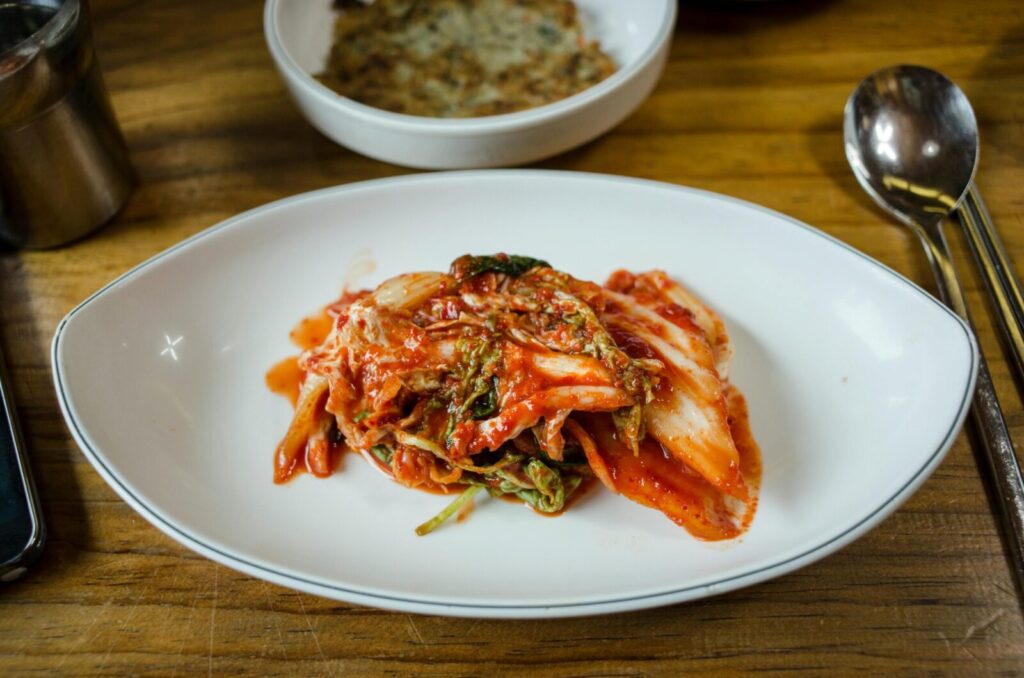
This spicy Korean staple is a mix of fermented vegetables like cabbage, radish, and scallions seasoned with garlic, ginger, and chili. Kimchi’s fermentation promotes a wide variety of probiotics that help maintain gut integrity and reduce harmful bacteria. Its high fiber content encourages regularity, while antioxidants support overall wellness. Serve kimchi as a side dish, mix it into fried rice, or enjoy it in soups for a zesty, gut-friendly flavor boost.
5. Miso
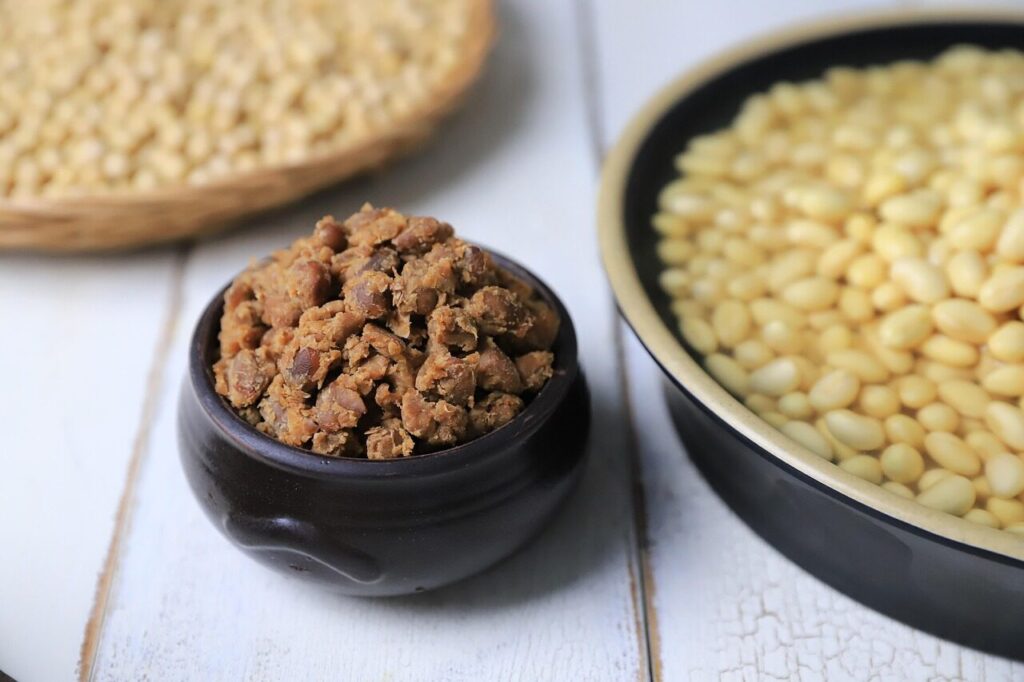
Miso, a traditional Japanese seasoning made from fermented soybeans, rice, or barley, is packed with beneficial bacteria and enzymes. When added to soups, dressings, or marinades, it provides a rich umami flavor while supporting gut health. Fermentation increases its nutrient content, supplying essential minerals and isoflavones that may reduce inflammation. For live cultures, stir miso into warm, not boiling liquids, as high heat can destroy the delicate probiotics it contains.
6. Tempeh
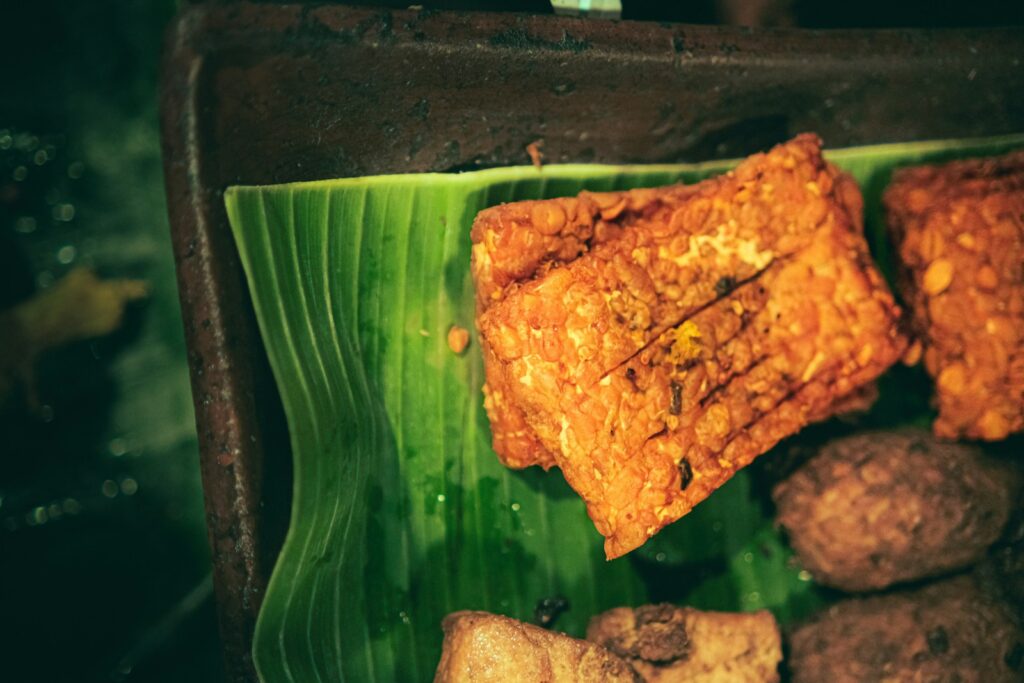
Tempeh is a firm, fermented soybean cake with a nutty flavor and a dense texture. During fermentation, natural mold cultures break down proteins, making tempeh easier to digest and rich in probiotics and prebiotic fiber. It’s a great plant-based source of protein, iron, and calcium, helping nourish both your body and beneficial gut microbes. Try it sautéed, grilled, or crumbled into salads and stir-fries for a satisfying, gut-healthy meal.
7. Kombucha
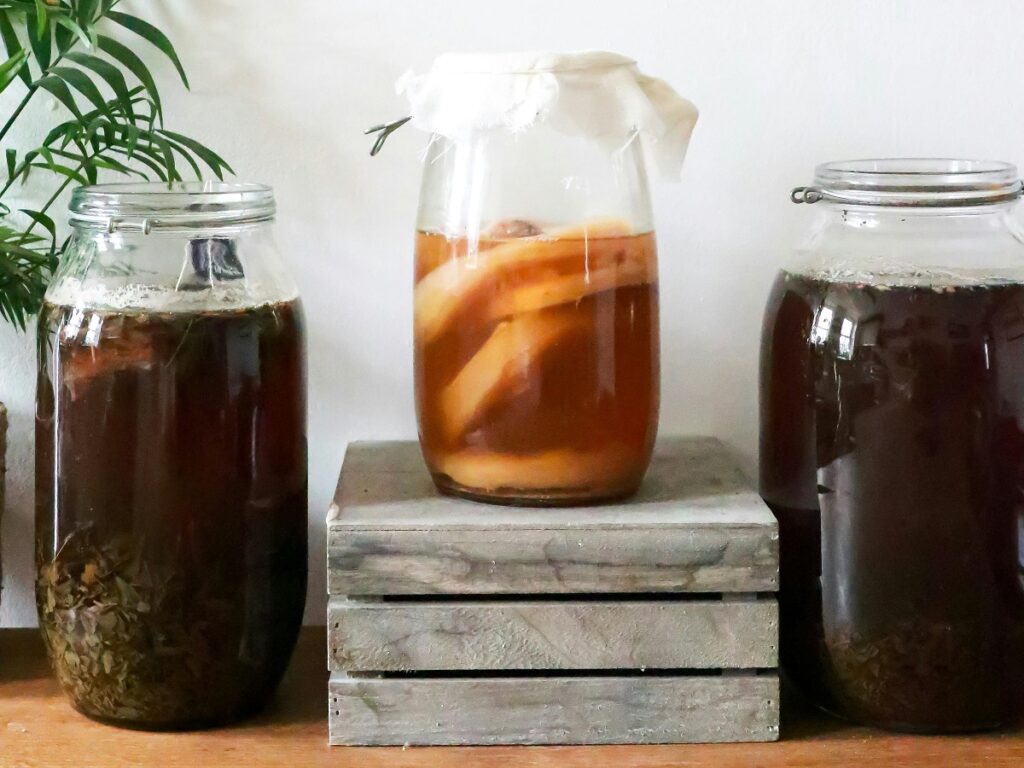
Kombucha is a lightly fizzy tea fermented with a symbiotic culture of bacteria and yeast (SCOBY). This process creates a tangy, slightly sweet drink brimming with probiotics, organic acids, and antioxidants that may enhance digestion and support liver function. Choose kombucha with low sugar to avoid upsetting gut balance. Sipping it chilled can refresh and hydrate while supplying friendly microbes to promote a diverse, resilient gut microbiome.
8. Garlic
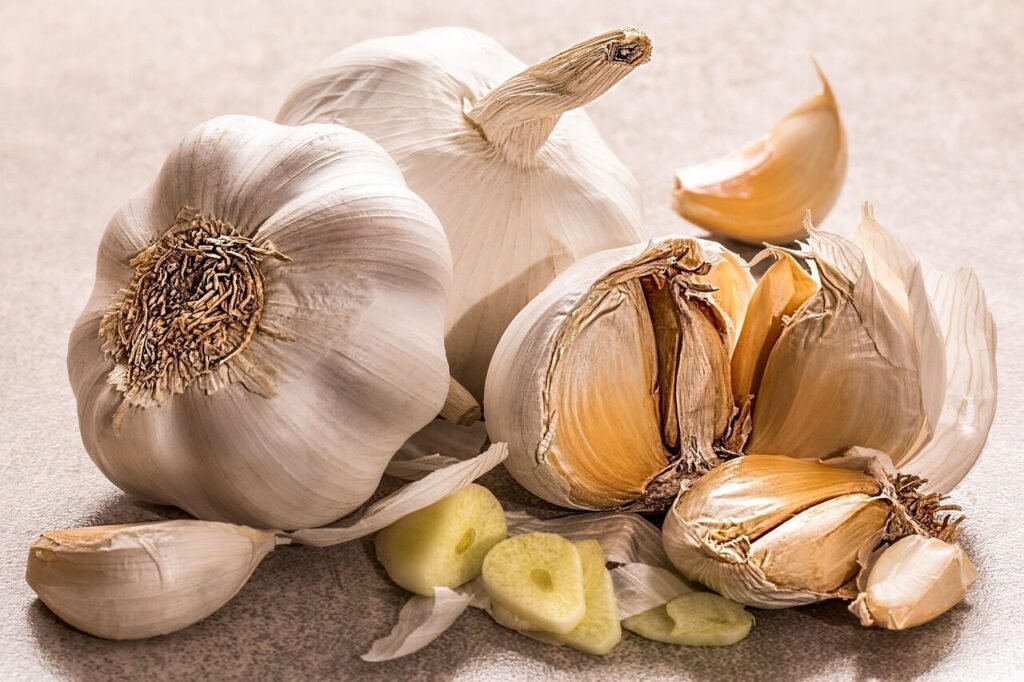
Garlic acts as a prebiotic, feeding the beneficial bacteria already living in your gut. Its natural compounds, such as inulin and allicin, help suppress harmful microbes while encouraging the growth of Lactobacillus and Bifidobacteria. Regular garlic intake can also reduce inflammation and strengthen immune defenses. Add fresh, raw garlic to dressings, dips, or roasted vegetables to unlock its gut-friendly and flavor-enhancing properties without losing valuable nutrients.
9. Onions
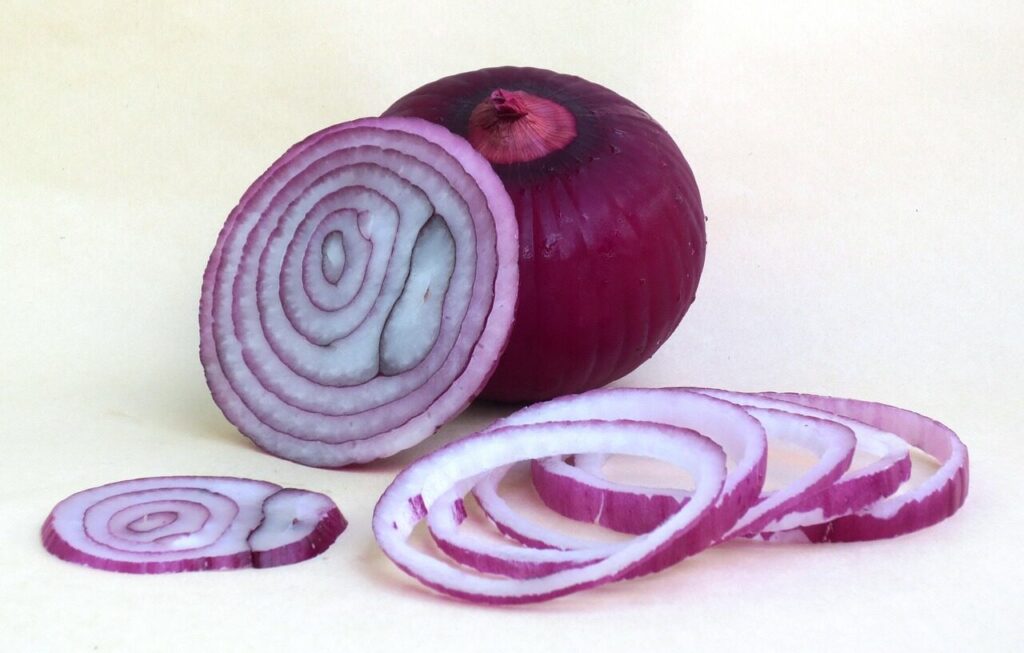
Onions, especially when eaten raw, are rich in prebiotic fibers like inulin and fructooligosaccharides. These fibers resist digestion in the small intestine, providing nourishment for gut bacteria in the colon. Onions also contain antioxidants that help protect the intestinal lining and reduce inflammation. Use them in salads, soups, or stir-fries to promote a healthy gut ecosystem while adding natural sweetness and depth to everyday meals.
10. Leeks
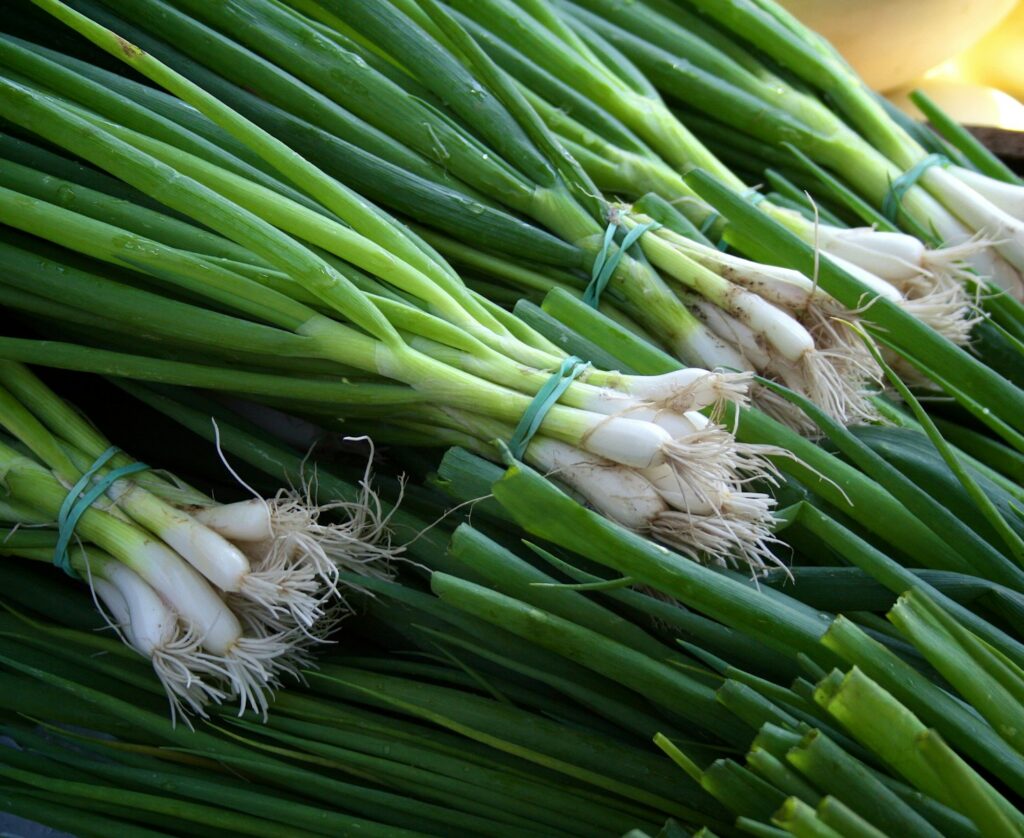
Leeks belong to the same family as garlic and onions and share their prebiotic powers. Their mild, sweet flavor makes them versatile for soups, sautés, and roasted dishes. Leeks are high in inulin, which helps friendly gut bacteria thrive and supports regular digestion. Rich in vitamins A, C, and K, they offer antioxidant protection for the gut lining. Eating them lightly cooked preserves nutrients while still providing gentle fiber for digestive wellness.
11. Asparagus
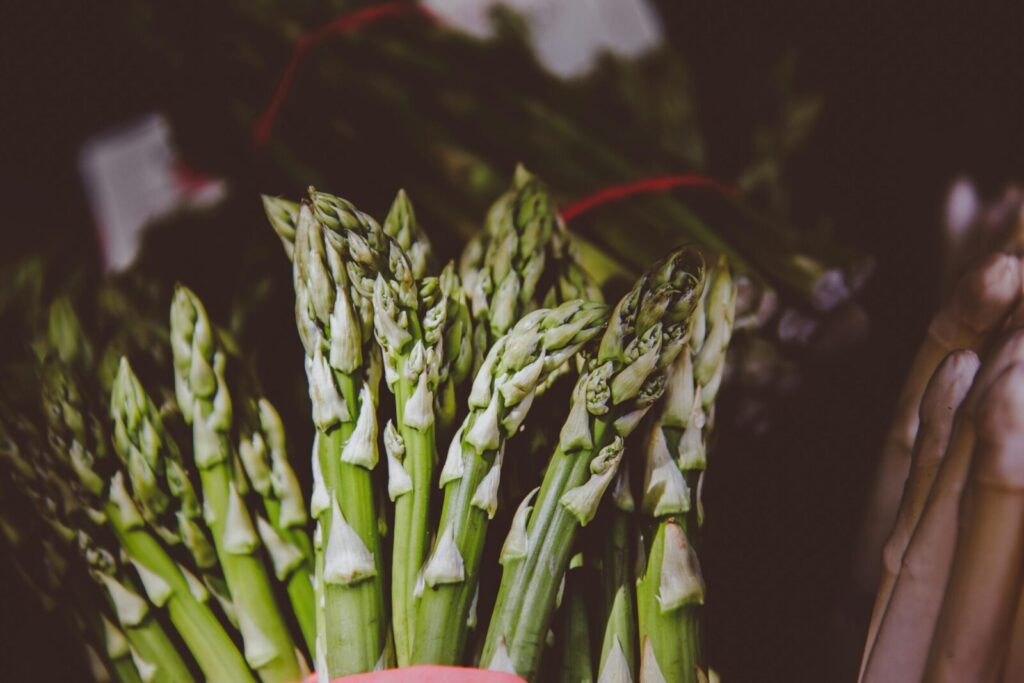
Asparagus is a top prebiotic vegetable containing inulin, a fiber that feeds beneficial gut bacteria and supports regular bowel movements. Its natural antioxidants and vitamins help reduce gut inflammation and oxidative stress. Enjoy asparagus steamed, roasted, or grilled to maintain its nutrient content and mild sweetness. Including it regularly in your diet encourages a balanced gut microbiome, which can improve digestion and overall immune function.
12. Bananas
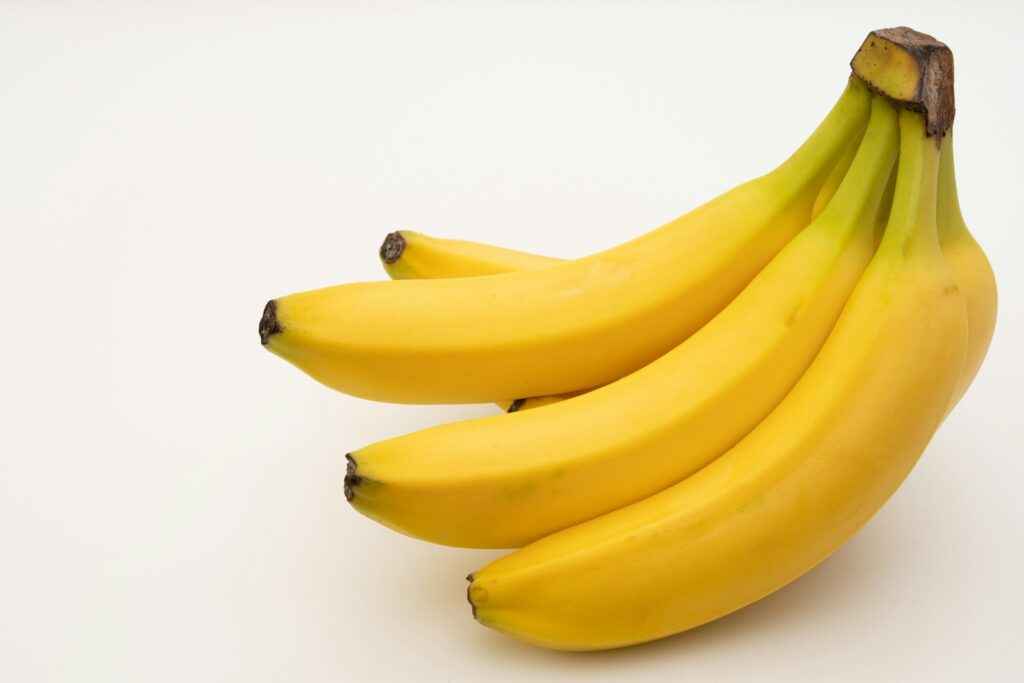
Bananas, particularly when slightly green, are rich in resistant starch and prebiotic fibers that fuel friendly gut bacteria. Their natural sweetness pairs well with cereals, smoothies, or as a quick snack. Bananas also provide potassium and magnesium, helping maintain electrolyte balance and digestive muscle function. Eating them daily can improve stool consistency and support gut regularity, making them a simple yet powerful food for digestive health.
13. Apples
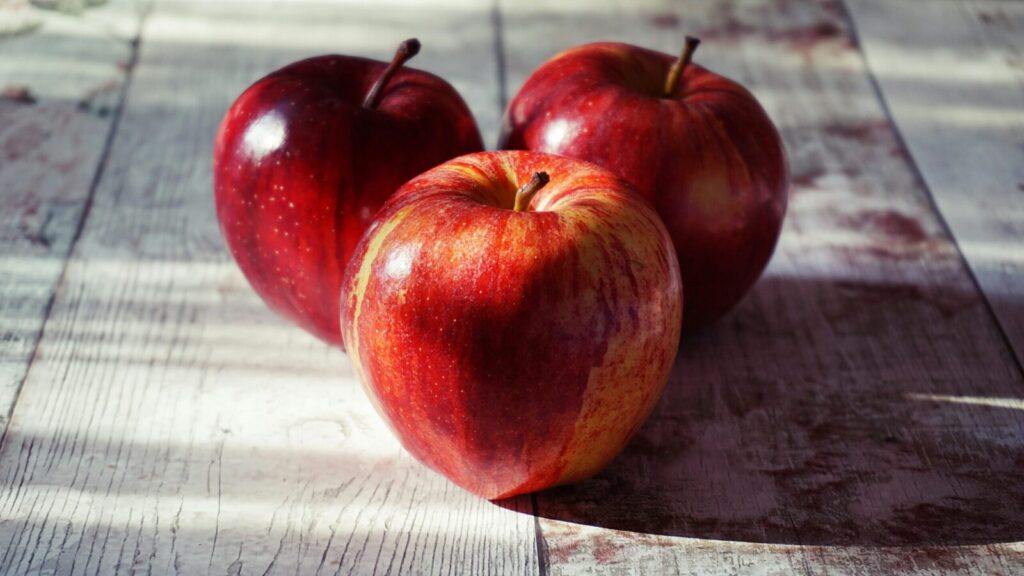
Apples contain pectin, a soluble fiber that acts as a prebiotic by feeding beneficial bacteria and forming a soothing gel in the intestines. This helps regulate digestion and may lower harmful cholesterol levels. Apples also supply antioxidants like quercetin that protect gut cells from inflammation. Enjoy them raw, baked, or sliced into salads for a crisp, naturally sweet way to nurture your gut microbiome.
14. Berries
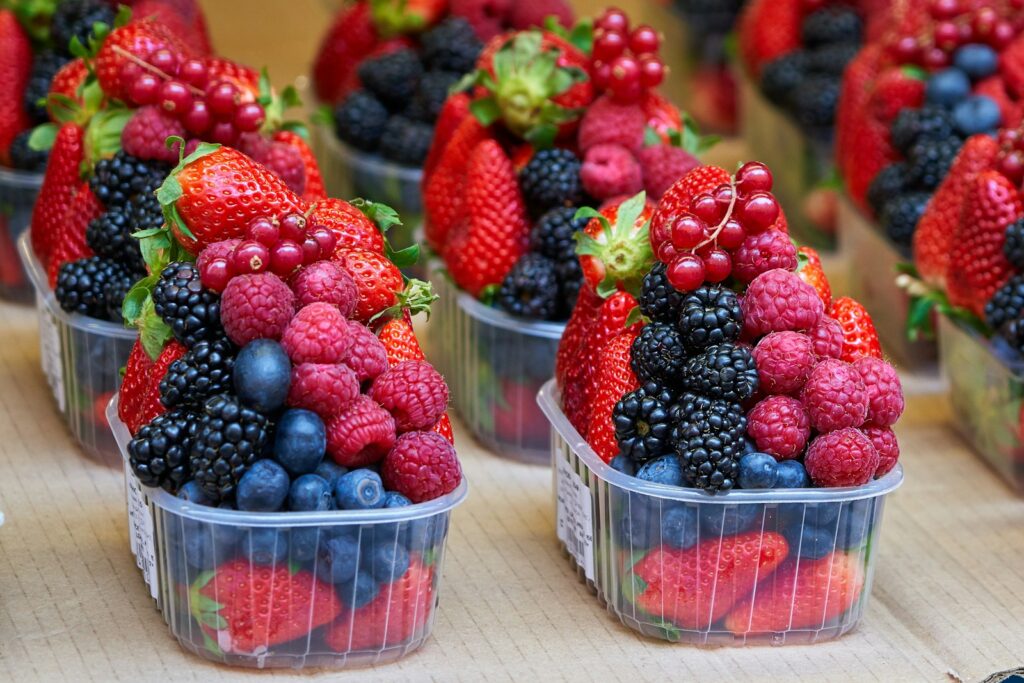
Blueberries, raspberries, strawberries, and blackberries are packed with fiber and polyphenols that promote healthy gut bacteria. Their natural compounds may reduce inflammation and strengthen the intestinal barrier. Berries are versatile; eat them fresh, frozen, or blended into smoothies for a delicious dose of antioxidants and prebiotics. Regular consumption supports microbial diversity and helps protect against digestive issues, making them a colorful, gut-friendly treat.
15. Oats
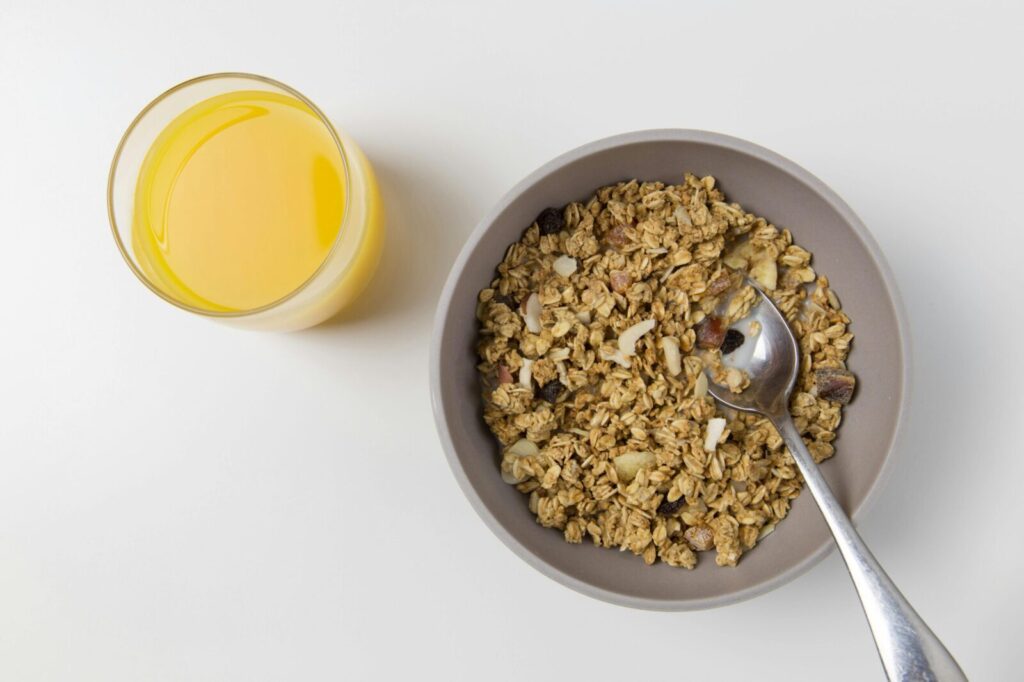
Oats are rich in beta-glucan, a soluble fiber that acts as a prebiotic and supports regular bowel movements. Their gentle fiber feeds beneficial bacteria, helping to improve gut integrity and reduce cholesterol. Start your morning with oatmeal, overnight oats, or add oat flour to baked goods for steady energy and digestive comfort. Choose minimally processed oats to preserve nutrients and maximize their gut-nourishing benefits.
16. Barley
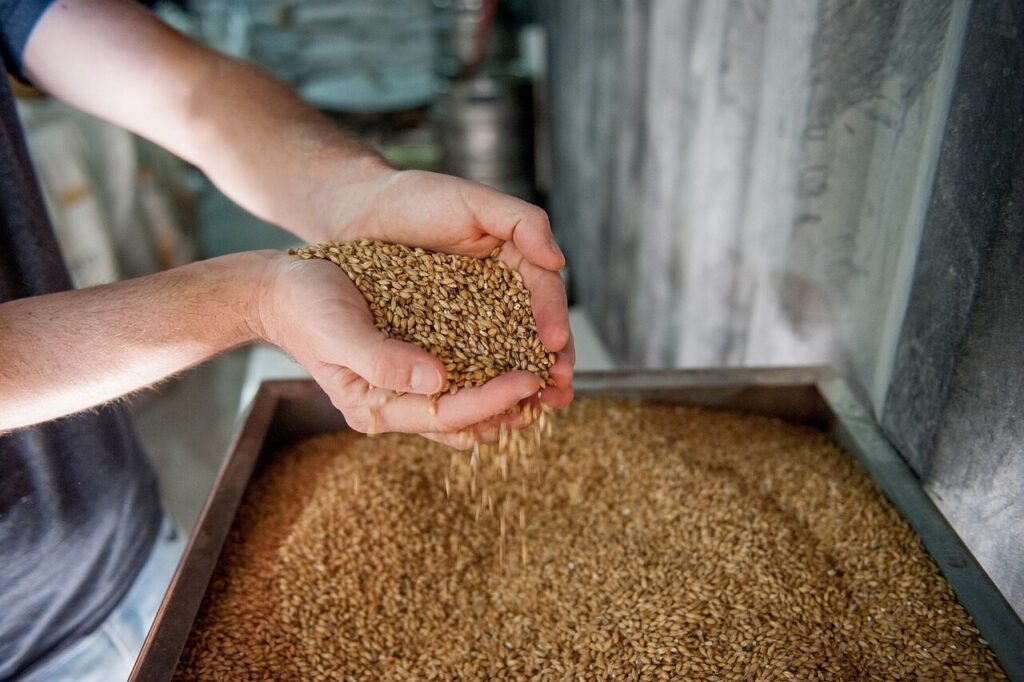
Barley is another whole grain abundant in beta-glucan fiber, which helps beneficial gut microbes produce short-chain fatty acids that nourish the intestinal lining. Its chewy texture and nutty flavor make it ideal for soups, salads, or pilafs. Regular barley consumption can promote satiety, support healthy cholesterol levels, and maintain a balanced gut environment. Opt for hulled or pearled barley for maximum nutritional value and digestive support.
17. Lentils
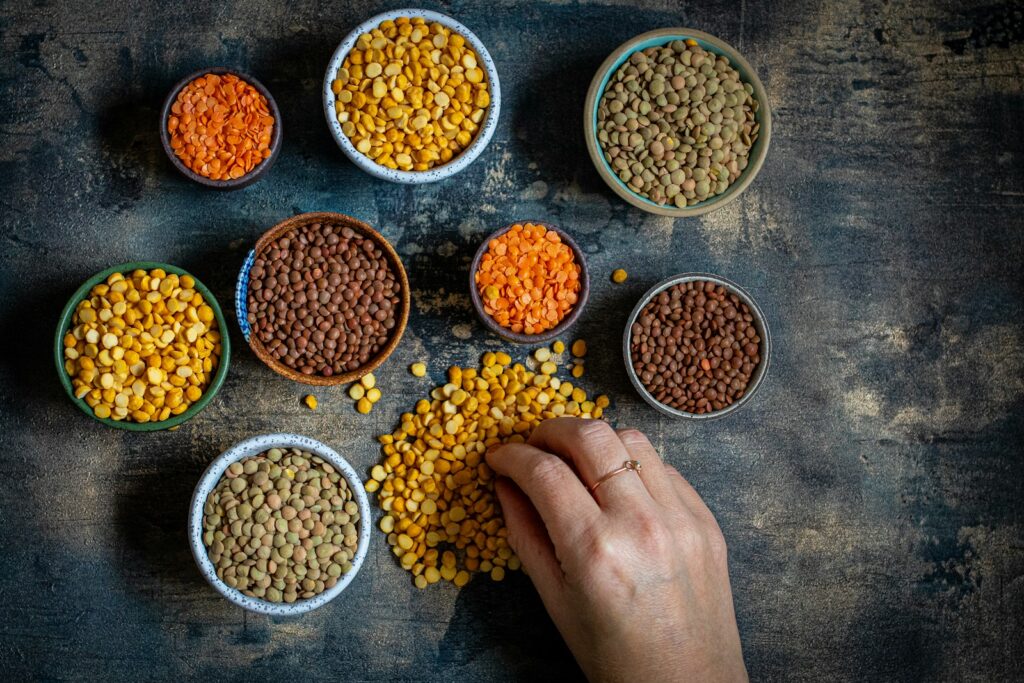
Lentils provide a potent mix of fiber, plant-based protein, and resistant starch that feeds beneficial gut bacteria. Their soluble and insoluble fibers improve stool bulk and keep digestion moving smoothly. Lentils also contain iron, folate, and polyphenols that help reduce inflammation. Incorporate them into soups, curries, or salads for an affordable, satisfying way to boost gut health while adding hearty flavor to meals.
18. Chickpeas
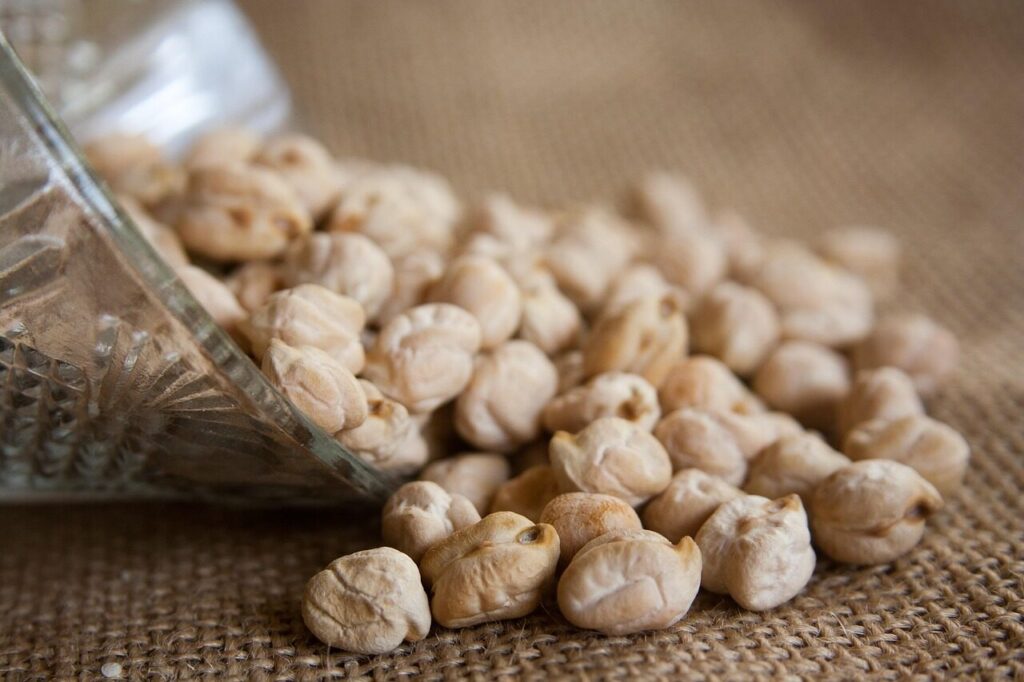
Chickpeas, or garbanzo beans, are packed with prebiotic fiber that encourages the growth of helpful gut bacteria and supports regularity. They also supply plant-based protein, iron, and magnesium for overall wellness. Roast them for a crunchy snack, stir them into stews, or blend them into hummus for a creamy dip. Their mild flavor and nutrient density make chickpeas a versatile staple for gut-friendly meals.
19. Almonds
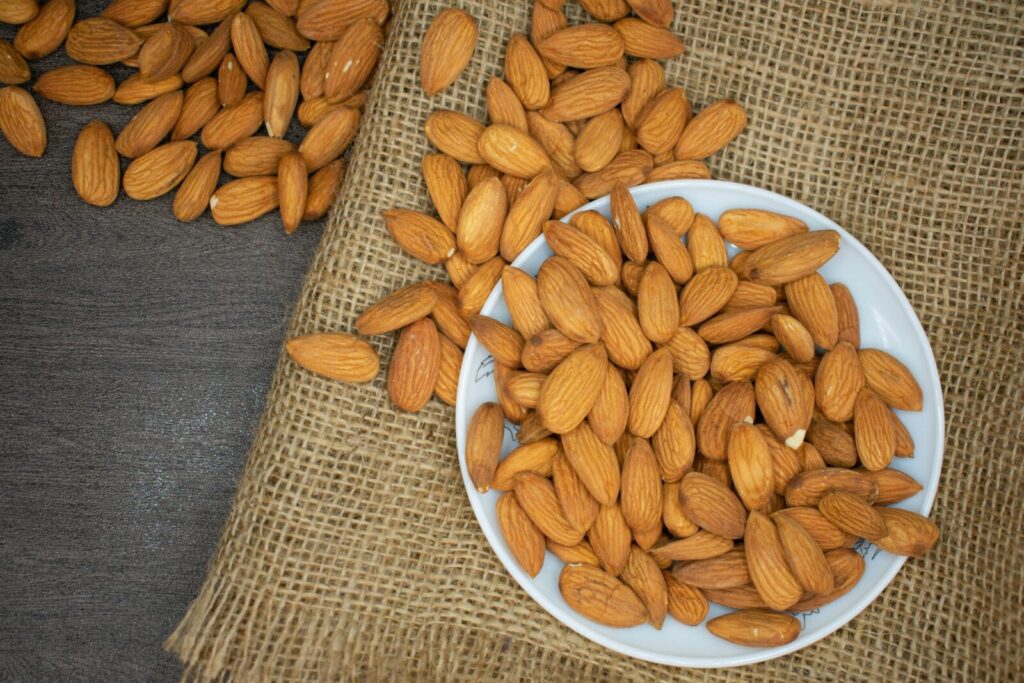
Almonds are rich in fiber, healthy fats, and polyphenols that act as prebiotics, promoting the growth of beneficial bacteria. Regular almond consumption can improve gut microbiota diversity and reduce inflammation. Enjoy them as a snack, sprinkle sliced almonds over salads, or blend them into almond butter for a creamy spread. Choose raw or lightly roasted varieties without added sugar or salt for maximum digestive benefits.
20. Chia Seeds
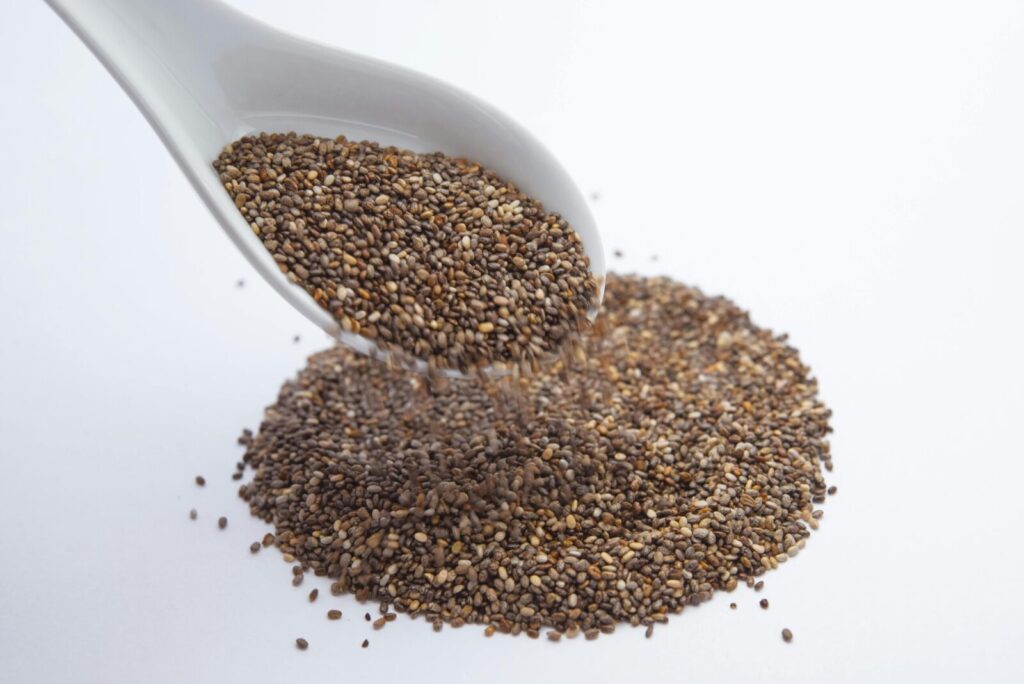
Chia seeds are tiny powerhouses of fiber and omega-3 fatty acids that help maintain regular bowel movements and feed gut-friendly bacteria. When soaked, they form a gel-like texture that soothes the digestive tract and promotes hydration. Add them to smoothies, oatmeal, or yogurt for an easy boost of nutrients. Regular chia consumption supports a balanced microbiome while helping control inflammation and supporting heart health.
Comments